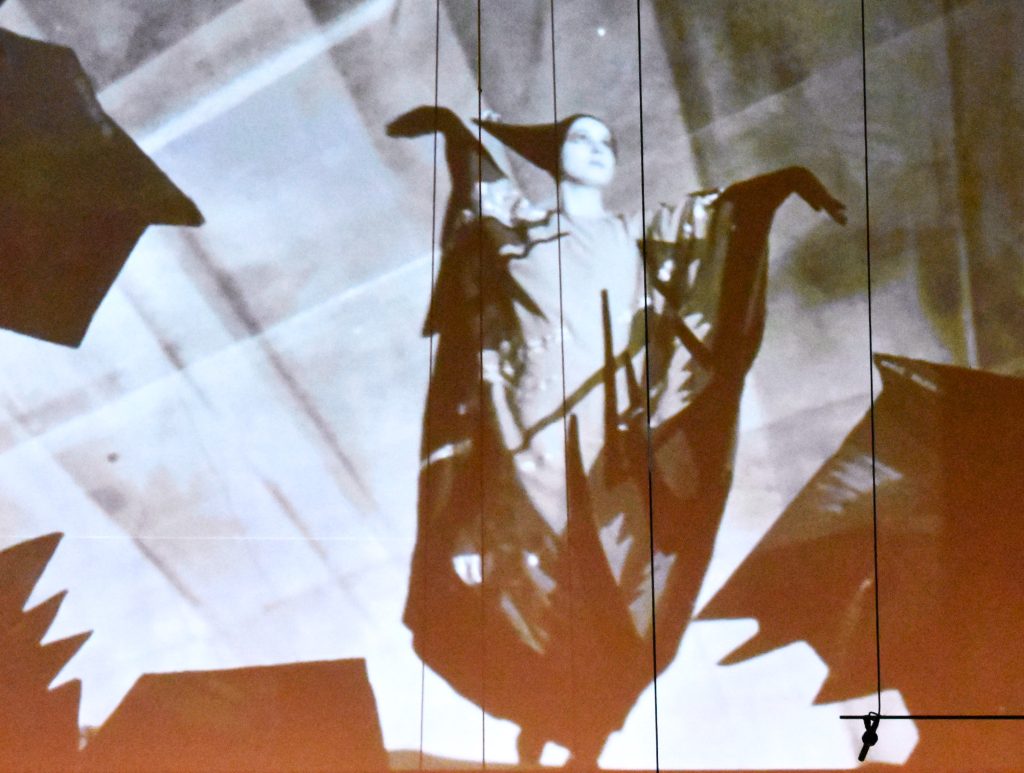
by Kevin T McEneaney
Last Saturday evening Bard College held a celebration for the twentieth anniversary of Sosnoff Theater at the Fisher Center. This year will also be the twentieth anniversary of Bard’s Summerscape program. The Orchestra Now delivered its 250th concert, which was devoted to an orchestral performance of Béla Bartók’s ballet The Wooden Prince (1917) conducted by Dr. Leon Botstein, plus a surprise second half.
The project for the composition of the ballet was first offered to his friend Zoltán Kodály who turned down the offer and recommended Bartók who accepted the commission. The result was an unusual musical composition on a fairy tale motif.
A fairy opposes the union of a girl and man who fall in love. A prince falls in love with a princess but is stopped from reaching her by a fairy who makes a forest and stream rise against him. To attract the princess’ attention, the prince hangs his cloak on a staff and fixes a crown and locks of his hair to it. The princess catches sight of this “wooden prince” and comes to dance with it. The fairy brings the wooden prince to life and the princess goes away with that instead of the real prince, who falls into despair. The fairy takes pity on him as he sleeps, dresses him in finery and reduces the wooden prince to lifelessness again. The princess returns and is finally united with the human prince. The moral of the work is that true love must go beyond the physicality of sex (the wooden phallus alone cannot be true love).

This work was a modest success that led the Opera House to re-stage a performance of Bartók’s Bluebeard’s Castle (1911). The music for The Wooden Prince remains astonishing for its ethereal beauty and unconventional sounds despite limning the influence of Debussy, Ravel, and Wagner. Composed in the mountains of Slovakia, the work demands a very large orchestra with two harps. There are no drums but there are deft and difficult timpani. Bartók conjures an Otherworld of sounds that do not appear in any other composer’s work as he goes beyond his varied influences.
The work is difficult to perform. For its premiere, the conductor Tango demanded thirty rehearsals. I don’t know how many rehearsals The Orchestra Now engaged in, yet they delivered a remarkable performance with subtle nuance!
The surprise second half was Lisa Fisher with The Orchestra Now conducted by James Bagwell. The Brooklyn-born vocalist and song writer has sung with Sting, Luther Vandross, Tina Turner, and she toured with The Rolling Stones from 1989 to 2015. They opened with “This Land is your land” by Woodie Guthrie with her four-piece band Grand Baton, her husband on lead guitar, accompanied by The Orchestra Now. James Bagwell had arranged a nifty interplay between the orchestra and the groovy band which I thought a great success.

Lisa Fisher possesses an unusually acrobatic voice that evokes wonder. She sang several of her own compositions which inhabits a netherworld between rock and blues. I preferred the more bluesy side and I loved her song about the difficulties of marriage, “Together.” This unusual amalgamation of Grand Baton and The Orchestra Now was a feather on the head of Lisa Fisher and James Bagwell.